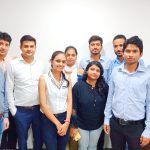Successful development—whether in software, business, or personal growth—relies on key principles that ensure efficiency, quality, and long-term sustainability. By focusing on the right factors, teams and individuals can streamline their processes, maximize productivity, and achieve outstanding results. Here are three essential winning factors for successful development.
1. Clear Planning and Goal Setting
One of the most critical factors in successful development is having a well-defined plan and clear objectives. Without a structured roadmap, projects can become chaotic, leading to missed deadlines, wasted resources, and unsatisfactory outcomes.
Key Aspects of Effective Planning:
-
Define Clear Objectives: Establish measurable goals that align with your vision.
-
Break Down Tasks: Divide the project into manageable milestones.
-
Set Realistic Timelines: Ensure achievable deadlines without compromising quality.
-
Risk Assessment: Identify potential obstacles and create contingency plans.
A well-planned strategy ensures that teams stay on track and that every step of development aligns with the overall mission.
2. Strong Collaboration and Communication
Effective teamwork is another vital factor in achieving successful development. Poor communication can lead to misunderstandings, delays, and errors, ultimately affecting the project’s quality and efficiency.
Best Practices for Collaboration:
-
Utilize Collaboration Tools: Platforms like Slack, Trello, and Asana help teams stay connected.
-
Encourage Open Communication: Foster a culture where feedback is welcomed and valued.
-
Regular Check-Ins: Conduct frequent meetings to track progress and address challenges.
-
Cross-Functional Teams: Encourage knowledge-sharing between different expertise areas.
When team members communicate effectively and work together seamlessly, development progresses smoothly, and innovation thrives.
3. Continuous Learning and Adaptability
The development landscape is constantly evolving, and the ability to adapt is a crucial factor in staying competitive. Whether it’s software development, business strategies, or personal growth, continuous learning ensures long-term success.
How to Foster a Learning Mindset:
-
Stay Updated: Follow industry trends, attend webinars, and read relevant content.
-
Encourage Skill Development: Invest in training and upskilling opportunities.
-
Embrace Change: Be willing to modify strategies based on new information and feedback.
-
Analyze and Improve: Regularly assess what works and refine processes accordingly.
By staying flexible and open to learning, developers and businesses can stay ahead of the curve and maintain a competitive edge.
Conclusion
Success in development depends on a combination of strategic planning, effective collaboration, and continuous learning. By focusing on these three winning factors, individuals and teams can navigate challenges efficiently and achieve their development goals with confidence. Whether you’re a developer, entrepreneur, or project manager, implementing these principles will set the foundation for long-term success.





